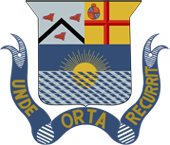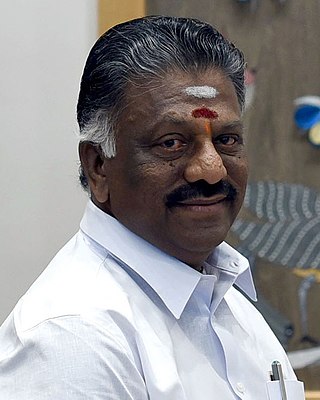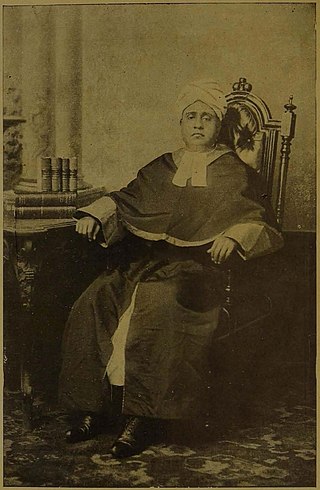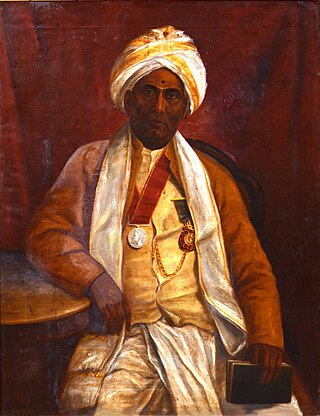Related Research Articles

Justice Vaidyanathapuram Rama Iyer Krishna Iyer was an Indian judge who became a pioneer of judicial activism. He pioneered the legal-aid movement in the country. Before that, he was a state minister and politician.

Presidency College is an art, commerce, and science college in the city of Chennai in Tamil Nadu, India. On 16 October 1840, this school was established as the Madras Preparatory School before being repurposed as a high school, and then a graduate college. The Presidency College is one of the oldest government arts colleges in India. It is one of two Presidency Colleges established by the British in India, the other being the Presidency College, Kolkata.
The chief instrument through which judicial activism has flourished in India is public interest litigation (PIL) or social action litigation (SAL). It refers to litigation undertaken to secure public interest and demonstrates the availability of justice to socially-disadvantaged parties and was introduced by Justice P. N. Bhagwati and Justice V.R. Krishna Iyer. It is a relaxation on the traditional rule of locus standi. Before 1980s the judiciary and the Supreme Court of India entertained litigation only from parties affected directly or indirectly by the defendant. It heard and decided cases only under its original and appellate jurisdictions. However, the Supreme Court began permitting cases on the grounds of public interest litigation, which means that even people who are not directly involved in the case may bring matters of public interest to the court. It is the court's privilege to entertain the application for the PIL.

Ottakarathevar Panneerselvam, popularly known as OPS is an Indian Politician who was the 6th Chief Minister of Tamil Nadu briefly in December 2016 and previously from 2001 to 2002 and again from 2014 to 2015. As finance minister, he has presented the Tamil Nadu state budget 11 times.

Dewan Bahadur Sachivottama SirChetput Pattabhiraman Ramaswami IyerLL.D. D.Litt., popularly known as Sir C. P., was an Indian lawyer, administrator and statesman, acknowledged as the most powerful man in the Madras Presidency in the decades immediately prior to Indian Independence.

Dr. Ambedkar Government Law College, commonly known by its former name Madras Law College, is a law school, located in Chennai (Madras), Tamil Nadu, India. It is also referred to as Government Law College or GLC, Chennai. It was established in 1891. It was renamed in 1990, as Dr. Ambedkar Government Law College, by the Government of Tamil Nadu in commemoration of the birth centenary of B. R. Ambedkar. In 1997, the Government of Tamil Nadu passed an Act which brought the college under the wings of the newly established Tamil Nadu Dr. Ambedkar Law University, splitting the college from the University of Madras.

Tamil Nadu Legislative Council was the upper house of the former bicameral legislature of the Indian state of Tamil Nadu. It began its existence as Madras Legislative Council, the first provincial legislature for Madras Presidency. It was initially created as an advisory body in 1861, by the British colonial government. It was established by the Indian Councils Act 1861, enacted in the British parliament in the aftermath of the Indian Rebellion of 1857. Its role and strength were later expanded by the second Council Act of 1892. Limited election was introduced in 1909. The Council became a unicameral legislative body in 1921 and eventually the upper chamber of a bicameral legislature in 1937. After India became independent in 1947, it continued to be the upper chamber of the legislature of Madras State, one of the successor states to the Madras Presidency. It was renamed as the Tamil Nadu Legislative Council when the state was renamed as Tamil Nadu in 1969. The Council was abolished by the M. G. Ramachandran administration on 1 November 1986. In 1989, 1996 and 2010, the DMK regime headed by M. Karunanidhi tried to revive the Council. The former AIADMK regime (2016-2021) expressed its intention not to revive the council and passed a resolution in the Tamil Nadu Legislative Assembly in this regard.
Pai is a surname from coastal Karnataka, Kerala and Goa in India. It is found among Hindus of the Goud Saraswat Brahmin community, especially of Madhwa Section following either Kashi Math or Gokarna Matha.

The Government of Tamil Nadu is the administrative body responsible for the governance of the Indian state of Tamil Nadu. Chennai is the capital of the state and houses the state executive, legislature and head of judiciary.

Sir Pazhamaneri Sundaram Sivaswami Iyer was a prominent lawyer, administrator and statesman who served as the Advocate General of Madras from 1907 to 1911.

Venkatarama Krishnaswamy IyerCSI was an Indian lawyer who served as a justice of the High Court of Madras and on the Executive Council of the Governor of Madras known also as a leader in the second generation of the Mylapore clique.

Ganapathy Dikshitar Subramania Iyer was a leading Indian journalist, social reformer and freedom fighter who led the Triplicane Six in launching The Hindu, an English newspaper on 20 September 1878. He was proprietor, editor and managing director of The Hindu from 20 September 1878 to October 1898. The Tamil language newspaper 'Swadesamitran' was also founded by him in 1882.
K. Ponmudi is an Indian politician and the former Minister for Higher Education of Tamil Nadu, who was disqualified in 2023 after the Madras High Court convicted him in the disproportionate assets case. He was the Minister for Higher Education of Tamil Nadu from 2006 to 2011. He was born in T. Edaiyar in the Villupuram district. He has a bachelor's degree in law, a master's degree in history, political science and public Administration and a doctorate in political science. He is an alumnus of Annamalai University. Before entering professional politics, he was a professor in the Villupuram government college. He has been elected to the Tamil Nadu assembly five times. From 1989 to 1991 during Dravida Munnetra Kazhagam rule he was the Minister for Health, and from 1996 to 2001 he was the Minister for Transport and Highways. He authored a book titled Dravidian Movement in India and Black Movement in the U.S.A.

Sir Thiruvarur Muthuswamy Iyer was an Indian lawyer who, in 1877, became the first native Indian during the British Raj to be appointed as justice of the High Court of Madras, acting as Chief Justice in 1893.

Pralhad Balacharya Gajendragadkar was the 7th Chief Justice of India, serving from February 1964 to March 1966.
Subramanya Ramachandra Iyer was an Indian lawyer who served as the Chief Justice of the Madras High Court from 10 May 1961 to 1 November 1964. Madras lawyer Vasantha Pai found evidence that Iyer had falsified his birth date to avoid compulsory retirement at the age of 60 including going to the Judge's birthplace and photographing his original birth register which showed his real age. Judge Iyer denied that he was over 60 years. It became a scandal after the Judge's younger brother, Subramanya Rajagopalan sent invitations to celebrate his 60th birthday while his elder brother the Judge's age was shown as below 60 years. Pai filed a petition. Iyer resigned on 1 November 1964 on a request from the then Chief Justice of India P. B. Gajendragadkar as the case would damage the judiciary and this led the petition to be eventually dismissed in 1967 on the grounds that Iyer had already resigned his judgeship.
A private attorney general or public interest lawyer is an informal term originating in common law jurisdictions for a private attorney who brings a lawsuit claiming it to be in the public interest, i.e., benefiting the general public and not just the plaintiff, on behalf of a citizen or group of citizens. The attorney may, at the equitable discretion of the court, be entitled to recover attorney's fees if they prevail. The rationale behind this principle is to provide extra incentive to private attorneys to pursue suits that may be of benefit to society at large. Private attorney general suits are commonly, though not always, brought as class actions in jurisdictions that permit the certification of class action lawsuits.
Puspanathan Wilson is a Senior Advocate in India, who served as the Additional Solicitor General of India between August 2012 and May 2014, and the Additional Advocate General of the State of Tamil Nadu between August 2008 and May 2011.

The Madras High Court is a High Court in India. It has appellate jurisdiction over the state of Tamil Nadu and the union territory of Puducherry. It is located in Chennai, and is one of the oldest high courts of India along with Calcutta High Court in Kolkata and Bombay High Court in Mumbai. The Madras High Court is one of four charter high courts of colonial India established in the four Presidency Towns of Madras, Bombay, Allahabad and Calcutta by letters patent granted by Queen Victoria, dated 26 June 1862. It exercises original jurisdiction over the city of Chennai, as well as extraordinary original jurisdiction, civil and criminal, under the letters patent and special original jurisdiction for the issue of writs under the Constitution of India. Covering 107 acres, the court complex is one of the largest in the world, second only to the Supreme Court of the United Kingdom. The four-storey administrative building attracts hundreds of litigants every day.
T. S. Sivagnanam is an Indian Judge. Presently, he is serving as the Chief Justice of Calcutta High Court. He is former Judge of Madras High Court.
References
- ↑ "Vasantha Pai, an advocate's advocate - TAMIL NADU". The Hindu . 16 February 2009. Retrieved 8 December 2016.
- ↑ "Debates, Official Report, Volume 132". Tamil Nadu (India). Legislature. Legislative Council. 1975. p. 156. Retrieved 10 September 2021.
- ↑ "G. Vasantha Pai vs Sri S. Ramachandra Iyer Now ... on 20 March, 1967". Indiankanoon.org. Retrieved 8 December 2016.
- ↑ "C Hariprasad Vs. G Vasantha Pai". The-laws.com. Retrieved 8 December 2016.
- ↑ "The controversy over age... then and now". The Hindu . 29 January 2012. Retrieved 8 April 2015.
- ↑ Albuquerque, Olav (29 April 2022). "PIL jurisprudence needs to undergo a change, writes Olav Albuquerque". Free Press Journal. Retrieved 14 April 2024.
- ↑ "Madras High Court G. Vasantha Pai vs C.K. Ramaswamy And Anr. on 5 July, 1978". Indian Kanoon. Retrieved 10 September 2021.
- ↑ Raghavan, Vikram (1 February 2009). "Law and Other Things: G. Vasantha Pai - Unsung Pioneer of Judicial Accountability in India". Lawandotherthings.blogspot.in. Retrieved 12 December 2018.